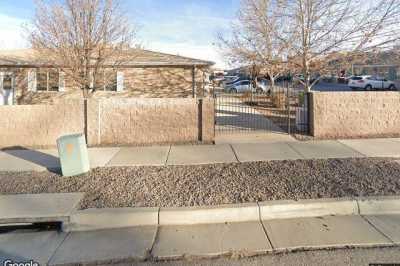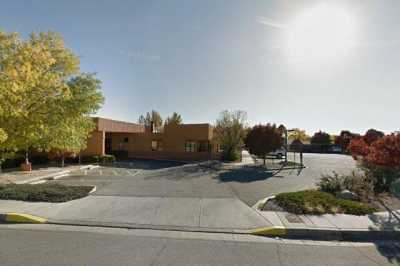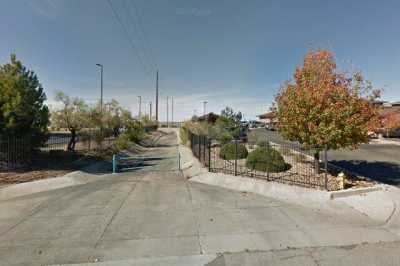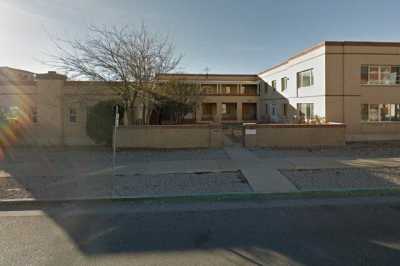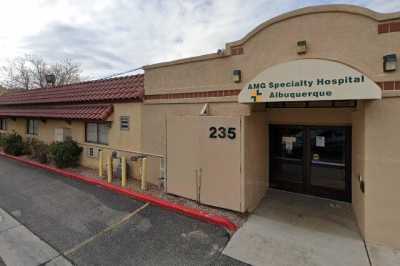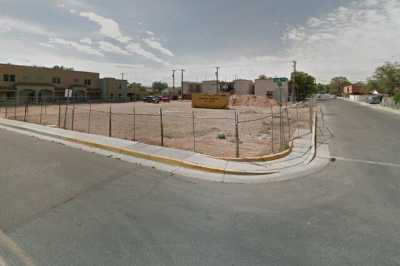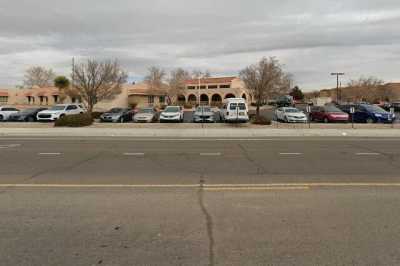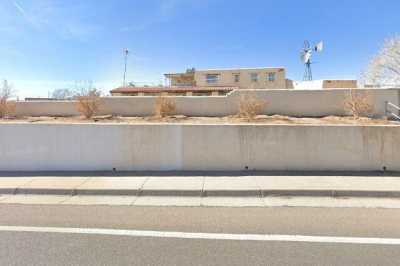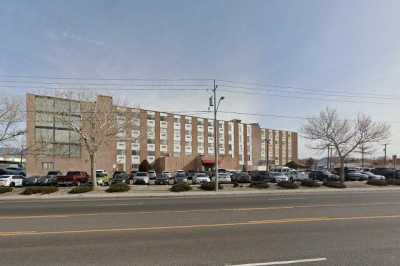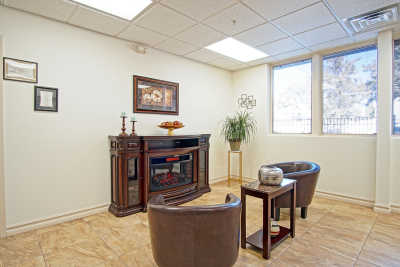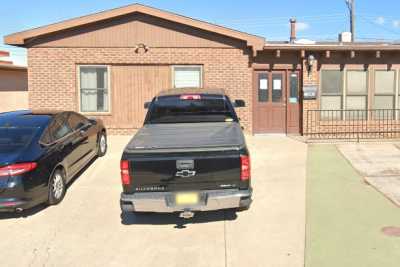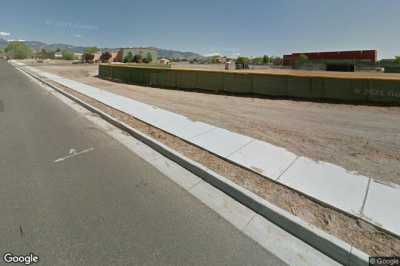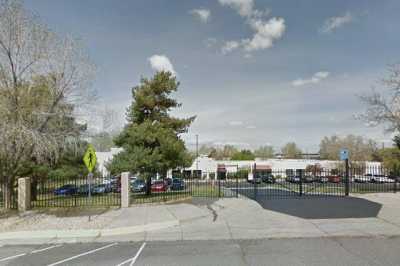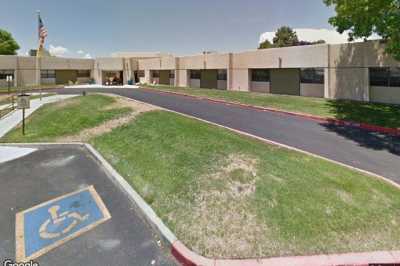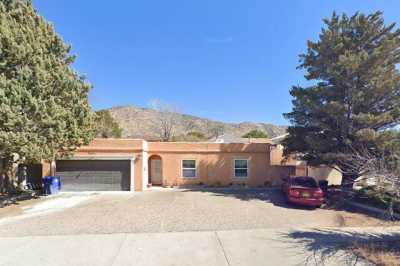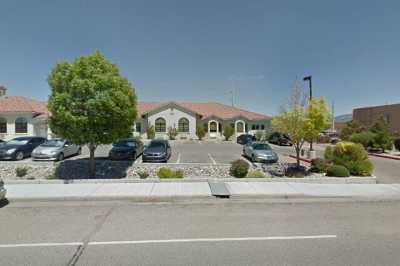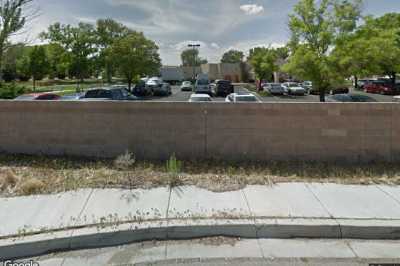
10 Best Nursing Homes in Albuquerque, NM
Albuquerque is a Southwestern city rich in cultural diversity, delicious cuisine, scenic mountain ranges, and temperate climate. Albuquerque’s senior living communities, including nursing homes, strive to offer an engaging and homelike environment. Residents of Albuquerque senior care communities have access to a variety of personalized care services and the best food, culture, and entertainment that the city has to offer.
While the term “nursing home” is often used to describe all senior communities, it specifically refers to senior care communities with round-the-clock skilled nursing care. If your senior loved one requires support with activities of daily living or even dementia care, but doesn’t need 24-hour medical oversight, there may be a better fit for them in an assisted living or memory care community.
Albuquerque has 39 assisted living and memory care communities within a 10-mile radius from its downtown area. We’ve created this guide to these Albuquerque senior care communities based on our extensive senior living experience, proprietary data, and access to local senior living experts. Browse these Albuquerque senior care facilities according to your specific needs: support services, amenities, value for the money, pet accommodations, social and enrichment offerings, and more. Find information about the different types of senior care, payment options, regulations, and other helpful resources to benefit Albuquerque seniors.
Nursing Homes Facilities near Albuquerque, NM
The care has been good and I am happy with the care. The staff are helpful and attentive for my dad. The meals are good and my dad likes the food. I would recommend the services if they needed and can afford...
I went to Manzano to recover from hip replacement surgery. I had a clean and attractive room overlooking the garden. The staff, from top to bottom, made me feel welcome and very cared-for. My calls were...
I spent 24 hours in another facility before having the good luck to get a bed in Advanced Health Care, with great nurses and CAIs, not to mention goof food. I was there for three weeks and given the...
Our free advisors can help
- Compare local facilities
- Determine care type
- Schedule tours
- Evaluate pricing
Our methodology
How we rank order the Albuquerque community options above
We developed a proprietary recommendation system that orders Albuquerque community options based on factors we know are important to seniors and their families:
- Proximity to your search location
- Availability of recent, high-quality reviews
- The amount of detailed community information available
Where we source our information
14,000+ communities
We collect proprietary data from our network of 14,000+ senior living communities in the U.S., with regular refreshes of data and information
350,000+ reviews
We have 387,000+ reviews from senior living residents and family members that provide first-hand accounts about senior living communities
- Costs of nursing homes in the Albuquerque area
- What families are saying about nursing homes in Albuquerque
- How people pay for a nursing home in Albuquerque
- Understand New Mexico laws and regulations for nursing homes
- What to expect from senior care in Albuquerque
- Albuquerque nursing homes services and amenities
- Explore senior care with confidence
- Unfamiliar with Albuquerque? Highlights for seniors
Costs of nursing homes in the Albuquerque area
The cost of a senior care facility in Albuquerque varies by care type.
- Accommodations in a skilled nursing facility start at an average of $9,518, before the addition of amenities.[01]
- Assisted living costs in our area partner communities average $4,327, according to A Place for Mom proprietary data. This amount includes amenities, such as meal service, pet fees, errand services, and other add-on fees.[02]
- Memory care costs are typically a bit higher than assisted living, with the average in our Albuquerque network hovering around $4,747, including add-ons.[02]
Average monthly cost of Nursing Homes in Albuquerque, NM vs. nearby cities
Average monthly cost of Nursing Homes in Albuquerque, NM vs. the state and national average
Average monthly cost of Nursing Homes in Albuquerque vs. other types of senior living
Median monthly costs of Nursing Homes in Albuquerque, NM by room type
What families are saying about nursing homes in Albuquerque
Recent reviews for nursing homes in Albuquerque
The Woodmark at Uptown in Albuquerque, NM
GoodLife Senior Living Los Lunas
Manzano Del Sol Good Samaritan in Albuquerque, NM
How people pay for a nursing home in Albuquerque
Albuquerque residents have a number of private and public assistance options to pay for skilled nursing facilities, assisted living communities, or memory care services. Start by assessing your loved one’s financial situation. That will be the best way to determine which methods to choose when searching for care.
Even if your loved one has private pay options, you’ll still want to check their eligibility for public aid as well. There may be disability-specific assistance available to help your loved one’s private pay options go even further toward their care.
If you have the resources, you may be able to fund assisted living, memory care, or skilled nursing care in Albuquerque through private pay methods. Private pay methods can include your loved one’s income sources like savings, pensions, returns on investments, and Social Security benefits. See below for additional private pay options:
VA benefits for skilled nursing in Albuquerque
New Mexico has one state-of-the-art veterans nursing facility, the New Mexico State Veterans’ Home, located in Truth or Consequences to the southwest of Albuquerque. In addition to skilled nursing, this veterans home also has a separate memory care unit for veterans with Alzheimer’s or another form of dementia. The cost of care for eligible veterans will depend on their income and level of need. If you think the New Mexico State Veterans Home would be the right choice for your veteran loved one, you can submit a simple application for admission.
VA benefits for assisted living and memory care in Albuquerque
Veterans who are eligible for the federal VA Aid and Attendance benefit can direct this stipend to their assisted living or personal care needs — whether that’s through home health care services or services at a senior living facility. The Aid and Attendance benefit, which can be used both for veterans and their surviving spouses, is additional pension disability income meant to cover anything that improves the disabled veteran’s quality of life. As such, it can be used for rent and care at an assisted living, memory care, or skilled nursing facility.
To qualify for the Aid and Attendance, a senior veteran must already receive VA benefits, be enrolled in VA health care, and meet at least one of the following:
- Need assistance with some activities of daily living
- Spend most of the day in bed due to untreated illness
- Have a qualifying disability due to active combat
- Have a qualifying visual impairment
Veterans benefits assistance
The approval process for the Aid and Attendance benefit can be difficult, and approval usually requires assistance or advocacy. New Mexico residents can receive assistance from veteran service officers (VSOs) through field offices located all around the state. Veteran service officers are fellow veterans who are familiar with benefits offerings and are able to assist veterans in getting the most out of their eligibility.
For assistance with finding veterans benefits for New Mexico residents, you can contact your local Veterans office or check out the New Mexico Department of Veterans Services web page. The New Mexico Judiciary Branch offers information on additional community resources for veterans, such as food and assistance, medical centers, housing assistance, rehabilitation, and more. New Mexico also has specialized departments for aiding veterans of foreign wars and for veterans with disabilities.
Number of veterans who currently live in Albuquerque, according to the U.S. Census Bureau
About 24% of Albuquerque veterans are 75+, according to the U.S. Census Bureau.
Resources for Albuquerque veterans
Albuquerque Veterans Offices Dennis Chavez Federal Building
500 Gold St. SW.
Albuquerque, NM 87102
Phone: 505-346-4810
Northeast Heights Office
5201 Eagle Rock Ave. NE., Suite 2A
Albuquerque, NM 87113
Phone: 505-383-2404
Veterans of Foreign Wars (VFW)
Department of New Mexico
Phone: 575-973-4965
Disabled American Veterans
Department of New Mexico
Phone: 505-294-6193
Medicaid is a federal- and state-funded medical insurance for individuals with low incomes or disabilities. New Mexico’s Medicaid program is called Centennial Care. While each state’s Medicaid program is a little different, all Medicaid programs must follow federal guidelines. Centennial Care offers coverage for seniors in a nursing home, along with Home- and Community-Based Waivers for those who need a nursing home level of care but prefer to live in their own home or other care facility.
Centennial Care offers coverage for seniors who require a “Nursing Facility Level of Care,” which is skilled nursing and/or custodial care. In New Mexico, individuals who need assistance with two or more activities of daily living (ADLs) are designated as needing a “Nursing Facility Level of Care.”[04] ADLs may include the following tasks:
- Dressing
- Bathing and grooming
- Toileting
- Eating or meal prep
- Mobility
Centennial Care will cover room and board in a skilled nursing facility, as well as any necessary medical and nonmedical care, but it will not cover non-necessities like private accommodations or entertainment.[05]
Albuquerque Medicaid for assisted living and memory care services
The New Mexico Centennial Care Community Benefit Program offers waiver programs which can pay for care services in the patient’s chosen residence, either in a private home or an assisted living. These waiver programs are known as Home- and Community-Based Services (HCBS) waivers. Community Benefits through these waiver programs are benefits that are offered to seniors living in the community, as opposed to in a skilled nursing facility. “In the community” can mean the senior can remain living in their own homes, the home of a loved one, or in an assisted living facility or group home, including memory care.
A senior must be enrolled in a Centennial Care Managed Care Organization (MCO), and the agency providing the care services must be contracted with that MCO. Read the Centennial Care Community Benefit brochure to understand more about this program.
The Community Benefit can be used to cover costs of these services:
- Medical care services, including dementia care
- Adult day services
- Personal care services, such as assistance with activities of daily living
- Specialized therapies
- Home modifications, such as support railings, wheelchair ramps, emergency call systems, etc.
The HCBS waiver can also cover things like transition-related costs if a senior is moving from a Medicaid-approved skilled nursing facility back into the community, as well as long-term-care-related costs in the home they transfer to.
While Centennial Care is an entitlement for eligible New Mexico seniors, the HCBS waiver is not. This means that Community Benefits under the HCBS waiver will only be granted to a maximum number of eligible residents at a time. Once the maximum number is reached, the remaining eligible residents will be placed on a waiting list. They will be able to receive benefits when more spots become available. With entitlement benefits, such as Centennial Care, eligible residents can begin receiving benefits as soon as their application has been approved.
Program of All-Inclusive Care for the Elderly (PACE)
Residents of New Mexico who are 55 or older and who receive Medicaid can also take advantage of the Program of All-Inclusive Care for the Elderly, or PACE. Through PACE, eligible seniors can have all of their care services coordinated into a comprehensive care plan. New Mexico’s PACE program is also known as InnovAge New Mexico PACE. To qualify, New Mexico seniors must require a Nursing Facility Level of Support but continue living in their current residence, whether it’s in their own home, the home of a loved one, or a qualifying senior living community — either an assisted living facility, a memory care facility, or a group home.[06]
Albuquerque resident Medicaid resources
Albuquerque residents can manage their care through the New Mexico Human Services Department (NMHSD) and the New Mexico Aging and Long-Term Services Department (ALSTD). The ALSTD has several Area Agencies on Aging (AAAs) where New Mexico residents can receive additional support with Medicare, Medicaid, and other services. Below you’ll find links to these resources, as well as other tools and call centers that can help you apply for and access benefits.
Albuquerque Medicaid resources
New Mexico Human Services Department benefits access
YesNM Online Portal
New Mexico Aging and Long-Term Services Department Person-Centered Planning Tool
Person-Centered Planning Tool
New Mexico Medicaid Call Center
Phone: 800-283-4465
Aging and Disability Resource Center
Aging and Disability Resource Center services
Phone: 800-432-2080
Area Agency on Aging
Find your AAA
City of Albuquerque/Bernalillo County Area Agency on Aging
600 2nd St. NW., #808 Albuquerque, NM 87103
Phone: 505-768-2084
Indian Area Agency on Aging
625 Silver SW., Suite 414
Albuquerque, NM 87102
Phone: 505-629-8544
Medicare is a federally-funded program designed to extend health care coverage to Americans 65 or older and individuals with qualifying disabilities. Medicare has multiple parts that cover different aspects of health care, such as the following:
- Inpatient hospital stays or skilled nursing care
- Doctors’ services, medical services, and medical supplies
- Prescription medications
Medicare doesn’t cover the cost of room and board at an assisted living community; however, it will cover many of the costs associated with medical treatment, including dementia care. You can find more information on Medicare costs and coverage by visiting the federal Medicare website or reaching out to one of your local Albuquerque Social Security Administration offices. Qualified seniors may get help paying for Medicare deductibles and premiums through Medicare Savings Programs.
Albuquerque resident Medicare resources
A local long-term care (LTC) ombudsman in Albuquerque can help your loved one access the benefits they qualify for and advocate for their rights. An LTC ombudsman can also investigate any complaints from residents of long-term care facilities and help ensure that seniors receive the quality of care they deserve. The U.S. Social Security Administration can also help seniors receive access to Medicare support. You may be able to dual enroll in both Medicare and Medicaid, which will enable you to pay Medicaid premiums using Medicare benefits.
Albuquerque Medicare resources
Medicare-Medicaid Dual Enrollment
YesNM Online Portal
Apply for Medicare
Understand New Mexico laws and regulations for nursing homes
Skilled nursing, assisted living, and memory care facilities in New Mexico are licensed and regulated by the New Mexico Department of Health’s Division of Health Improvement, Health Facility Licensing and Certification Bureau. All facilities’ licenses are renewed yearly. Inspection reports on New Mexico senior care facilities can be viewed through a search of the Health Care Provider Survey Reports. To look up a particular facility’s inspection report using this tool, select the category of care provider from the drop-down menu, then narrow your search by entering the county, the city, or the name of the specific organization you’re searching for.
The Centers for Medicare and Medicaid Services (CMS) is a federal agency that regulates skilled nursing facilities. The CMS determines whether a skilled nursing facility is eligible to accept Medicare and Medicaid. After conducting a survey and completing a Life Safety Code survey, the CMS determines whether the facility is compliant with federal participation requirements.
New Mexico skilled nursing facilities are required to have at least one licensed nurse on duty 24 hours a day. Each skilled nursing facility must also have a director of nursing services on staff who is a licensed nurse and trained in specialties such as geriatric nursing, restorative nursing, psychiatric nursing, or nursing services administration.
Skilled nursing facilities are required to meet staff ratios that enable each resident to receive a minimum of 2.5 hours of nursing care in a given shift. While this means that the ratio may vary based on the length of each shift (day, evening, and night shifts), the average ratio is around 10 residents per nurse.
Skilled nursing meal service supervisors are required to consult a dietitian in planning the facility’s meals.[07]
New Mexico regulations require that skilled nursing, assisted living, and memory care facilities provide the following services:
- As-needed supervision and/or assistance with specified nursing services
- Medication administration assistance
- Assistance with activities of daily living
- Recreation and social activities
- Housekeeping and laundry services
- Transportation services
- Three nutritionally balanced meals per day, as well as evening snacks
The state’s assisted living and memory care regulations include the following staff requirements:
Required types of staff
- Administrator: A staff member in charge of the daily operations of the assisted living facility
- Direct care staff: Trained staff who offer personal care and supervision
- Licensed nurses, physician’s assistants, or nurse practitioners: must also be available to review health evaluations and individualized care plans
Staff ratio requirements
- One direct care worker for every 15 residents or fewer
- One direct care worker and one additional staff member per 16 to 60 residents
- Two direct care workers and one additional staff member per 61 to 120 residents
- At least three direct care workers and one additional staff member for more than 120 residents[08]
Memory care facilities are required to have confirmation of a diagnosis from each resident’s physician of the resident’s need to be in memory care. Memory care facilities may require secured indoor and outdoor environments. A memory care facility or secured unit must have at least one awake staff member at all times.
New Mexico Department of Health contact information
COVID-19 regulations for Albuquerque nursing homes
Most COVID-19 restrictions in New Mexico have been lifted. However, New Mexico skilled nursing and assisted living communities continue to have a few guidelines in place.

Testing. Nursing homes and assisted living communities in Albuquerque must not admit visitors who have tested positive for COVID-19 until 10 days past their positive test, provided that they have no symptoms at that time.

Masking. Visitors to nursing and assisted living facilities are encouraged to wear a face mask, especially if they are visiting a resident who has tested positive for COVID-19.
What to expect from senior care in Albuquerque
Albuquerque is rich in culture, with wonderful food, music, and scenery. Characteristic of the Southwestern U.S., Albuquerque is also a very family-focused area. Many families prefer to keep their aging loved ones in their home to be cared for by the younger generations. However, as this is not a viable option for every family, Albuquerque senior care communities strive to be as family-forward as possible.
While none of our partnered communities in Albuquerque offer skilled nursing, residents in assisted living or memory care may be able to bring in their own home health care aide within the community. Additionally, while the state’s senior care communities are all required to be licensed and regulated, New Mexico isn’t as strict as some states in determining what care services the facility can and can’t offer. Licensed New Mexico care facilities should be able to offer the level of care that they’re equipped and staffed to handle.
Albuquerque senior care communities are known for the following features:
Residential setting
Albuquerque has 10 residential care homes that offer both assisted living and memory care. Unlike larger assisted living facilities, residential care homes are typically single-family homes modified to accommodate a limited number of senior residents. This means residential care homes generally offer a higher staff-to-resident ratio in a homelike environment.
Residential communities’ neighborhood settings give them a cozy, often quiet atmosphere, and their small size can give residents a sense of normalcy rather than being in a larger community with more people where they may feel overwhelmed. Albuquerque residential care homes are subject to the same regulations as other assisted living facilities. Residents receive quality meals, care services, laundry and housekeeping services, and enrichment activities, but they may also receive more one-on-one attention due to the size of the home.
Multiple levels of care
Several Albuquerque senior living communities offer multiple types of care on-site. These communities usually feature a combination of independent living, assisted living, and memory care, so that if a resident’s care needs ever change, they can easily transition to a support level that fits them. This enables residents to age in place without the stress of having to switch communities.
Multiple care types together also offer more variety among residents, often giving more opportunity for friendships and community engagement, regardless of an individual’s specific level of need. As there are not always enough memory care openings to meet demands in Albuquerque, these multi-level care communities also enable seniors in mild stages of dementia to begin in assisted living even when memory care is full.
While some states have restrictions on who can be admitted to assisted living, such as requiring that residents be mobile with no more than one person assisting them, New Mexico senior care facilities are able to provide the level of care that they are equipped for. This means that many assisted living facilities can meet their residents’ needs without having to send them to a skilled nursing facility.
The suburbs around Albuquerque also have many skilled nursing and assisted living facilities. Rio Rancho, Corrales, and Los Ranchos de Albuquerque are excellent options for those who want access to the best of Albuquerque but don’t want to be as close to the city center.
Amenities
Many of Albuquerque’s assisted living communities offer amenities like movie theaters, barber shops and beauty salons, fitness centers, and restaurant-style dining, enabling residents to keep up their usual routines and pleasures without the hassle of a commute.
Albuquerque nursing homes services and amenities
Availability of select care services in Albuquerque nursing homes
Availability of select dementia care services in Albuquerque nursing homes
Availability of select dietary accommodations in Albuquerque nursing homes
Availability of select dining options in Albuquerque nursing homes
Availability of select programs and activities in Albuquerque nursing homes
Explore senior care with confidence
Know where to start.
Identify the right care for your loved one with our free assessment.

See what you can afford.
Understand cost and payment for long-term care based on your loved one's needs.

Find top facilities for you.
Free, personalized guidance from our Senior Living Advisors can help you narrow your search.

Tour your favorite facilities.
Our free touring checklist can help you choose the right community.
Unfamiliar with Albuquerque? Highlights for seniors
Number of seniors over the age of 65 currently living in Albuquerque, according to the U.S. Census Bureau
Percentage of seniors 65 and older within the Albuquerque population, according to the U.S. Census Bureau
Median annual retirement income for Albuquerque seniors 65 and older, according to the U.S. Census Bureau
Health care for seniors in Albuquerque
Albuquerque seniors have access to several reputable medical centers, many of which specialize in long-term acute care and rehabilitative stays. These types of facilities strive to reduce the risk of rehospitalization, which can be especially vital for seniors.

Presbyterian Hospital
Presbyterian Hospital is the largest hospital in the state of New Mexico. Ranked No. 1 in Albuquerque, according to U.S. News and World Report, Presbyterian offers a full range of medical and surgical procedures.

AMG Specialty Hospital Albuquerque
AMG Specialty Hospital Albuquerque offers extended critical care and recovery stays for patients to help lower the risk of rehospitalization. AMG Specialty has higher staff-to-patient ratios and an intensive care unit (ICU). The hospital does require longer stays to foster complete recovery.

Encompass Health Rehabilitation Hospital of Albuquerque
Encompass Health Rehabilitation Hospital of Albuquerque offers inpatient rehabilitation for a number of medical needs, including traumatic brain injury and stroke, orthopedic injury or surgery, illness, and more. Encompass Health typically accepts Medicare and Medicaid.

Kindred Hospital Albuquerque
Kindred Hospital Albuquerque offers long-term acute care. Patients at Kindred Hospital can receive the same comprehensive care offered by a standard hospital for an extended period.
Transportation for seniors in Albuquerque
Of our partnered assisted living and memory care communities in Albuquerque, 36% offer complimentary transportation services, and 48% offer transportation at an additional cost. This means that nearly all of our partnered communities in the area offer transportation on-site. While the neighborhoods and residential areas of Albuquerque are walkable, the commercial areas like shopping and dining generally require vehicle access.
Albuquerque has a main transit system known as ABQ RIDE. ABQ RIDE offers monthly passes, assistance with planning your route, and a Guaranteed Ride Home system. The Guaranteed Ride Home system is ABQ’s “commuter insurance.” In the case of an emergency, such as a passenger missing the last ride, ABQ will make sure that the passenger is still safely picked up and driven home.
Albuquerque also offers senior transportation services for residents aged 60 and up. Seniors have access to curb-to-curb van transport to medical appointments, meal sites, activities, and shopping, with wheelchair accommodations available for those who need it. Many of these services require reservations, which can be made by calling 505-764-6464.
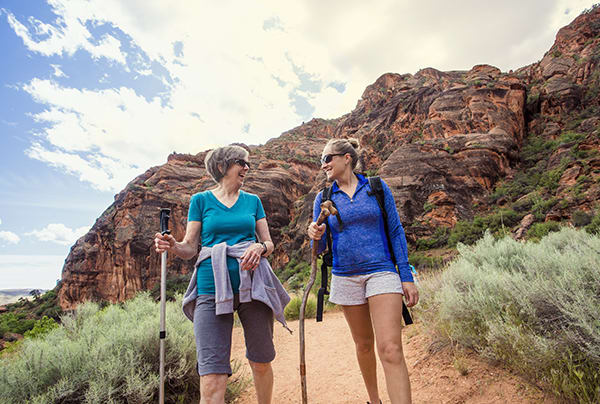
Senior activities in Albuquerque
Albuquerque outdoors
Albuquerque is a Southwestern desert oasis surrounded by dramatic mountain ranges, with over 300 days of sunshine per year. It’s the hot air balloon capital of the world, and in the summertime, the skies behind gorgeous mountain vistas are frequently dotted with bright colors. Residents of all ages can enjoy the views of the marvelous annual International Balloon Festival. For the active and nature-loving residents and visitors, Albuquerque is a hub for outdoor activities like hiking, bicycling, kayaking, and skiing.
Albuquerque senior centers
The city has many senior and multigenerational centers where older residents can form relationships with other locals in their same phase of life. Albuquerque seniors can enjoy concerts and lectures, participate in lifelong learning classes, and take up hobbies like pottery and other art forms. Senior centers also feature indoor and outdoor sporting adventures including skiing, hiking, and aerobics.
Albuquerque dining out
For food-lovers, Albuquerque is a destination city. Albuquerque’s restaurant options have something for everyone, with special emphasis on Southwestern favorites like Mexican cuisine and savory barbeque. Old Town Albuquerque is a great place to get a little of everything, from food and craft beverages to one-of-a-kind local boutiques.
Albuquerque for all ages
For the budget-conscious, the Visit Albuquerque website has a list of coupons, activities for under $10, and even free activities, so seniors can enjoy the city with the whole family. Visit places like the Breaking Bad RV Tour, Los Poblanos Historic Inn and Organic Farm, Creativity Warehouse, the American International Rattlesnake Museum, and more — all without breaking the bank.
When the grandkids go back home, seniors can check out the Albuquerque nightlife, where they’ll find casinos, billiard halls, breweries, and concerts. The city is also rich with performing arts, so even individuals who aren’t as mobile are able to enjoy the city’s wonderful cultural offerings.
Frequently Asked Questions
Fairwinds - Rio Rancho, Morada Quintessence and The Village At Alameda are the top-rated Nursing Homes facilities near Albuquerque, NM. These Nursing Homes facilities received the highest rankings based on verified family reviews. See full list of communities.
The average cost of Nursing Homes in Albuquerque is $4,708 per month. This cost may vary based on location, amenities, floorplan, level of care and other factors.
References
Genworth. (2022, June 2). Cost of care survey.
A Place for Mom. (2022-2023). A Place for Mom proprietary data.
United States Census Bureau. (2021). Veteran status (S2101): Albuquerque. [Data set]. American Community Survey.
Managed Care Program Community Benefit, NMAC Rev Stat § 8.308.12 (2019).
Nursing Facilities, NMAC Rev Stat § 8.312.2 (2014).
Program of All-Inclusive Care for the Elderly, NMAC Rev Stat § 8.315.2 (2006).
Requirements for Long Term Care Facilities, NMAC Rev Stat § 7.9.2 (2020).
Assisted Living Facilities for Adults, NMAC Rev Stat § 7.8.2 (2010).
New Mexico Department of Health Aging and Long-Term Services Department. (2022, February 7). Addendum to letter of direction updated December 14, 2021 for long-term care facilities.
United States Census Bureau. (2021). Population 65 years and over in the United States (S0103): Albuquerque. [Data set]. American Community Survey.

More questions?
Ask an A Place for Mom local advisor at no cost.
- El Llanito, New Mexico
- Rivajana, New Mexico
- Monterey Park, New Mexico
- Chical, New Mexico
- Bosque Farms, New Mexico
- Paquita, New Mexico
- Peralta, New Mexico
- Los Lentes, New Mexico
- Valencia, New Mexico
- Meadow Lake, New Mexico
- Los Lunas, New Mexico
- Sandia, New Mexico
- El Cerro, New Mexico
- El Cerro Mission, New Mexico
- Los Ranchos de Albuquerque, New Mexico
- North Valley, New Mexico
- Alameda, New Mexico
- Vista Encantada, New Mexico
- Edith Endave, New Mexico
- Martinez Town, New Mexico


